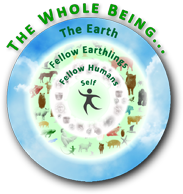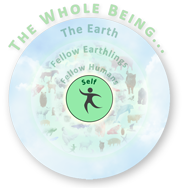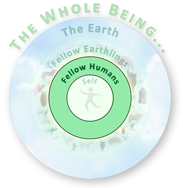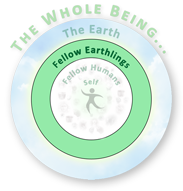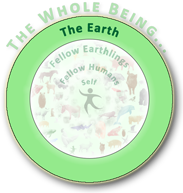Resource Library
To narrow down the list to only resources personally endorsed by CNCL, tick the “CNCL-Endorsed” box.
Please let us know if you find any errors or dead links.
Click here
for a list of…![]()
Broad-Coverage Independent News
& Media Sites
“The Web of Creation was established to foster the movement for personal and social transformation to a just and sustainable world from religious perspectives. To that end, the information at this site will: -connect you with ideas, resources and strategies for doing eco-justice. -inform, inspire, encourage, educate you about eco-justice. -support you in your efforts to live, work and pray in ways that promote eco-justice. The Web of Creation has also been developed to provide information and connections for theology students interested in environmental ministry.” “-Bovine Growth Hormone (BGH) & Milk, -Biomass, -Crematoria, -Dioxin, -Depleted Uranium, -Energy Justice Network, -Environmental Justice / Environmental Racism, -Incineration, -Israel / Palestine, -Landfills, -NukeNet Anti-Nuclear Network, -Plastics, -RACHEL’s Environment & Health Weekly Web Archive, -Sewage Sludge, -Toxics, Environmental Health and Pollution Mapping Projects, -Vegetarianism/Veganism” Book: “Since her arrest and five-day jail stay during the Seattle anti-WTO protests in November 1999, Starhawk has poured her energy into the global justice movement, participating in direct actions, leading nonviolence training workshops, and writing, always writing. Webs of Power is the outcome: an account from the front lines of that movement as it migrated from Seattle to Prague, then Brazil, Quebec City, and Genoa. As well as reporting the actions on the street, it includes a privileged glimpse behind the scenes, too, at the fierce discussion of the issues, strategies, and tactics of an always-evolving social movement. The book is also a personal vision of what an alternative future might look and feel like beyond the version offered up to us by the promoters of corporate globalization. Webs of Power is a unique contribution to our understanding of one of the most pivotal struggles of our time.” “Many weightlifters think a vegan diet might be detrimental to their efforts because of the lower protein content of a typical vegan diet. Other weightlifters feel that a vegan diet enhances their training regimen by reducing fatigue and improving general health. Unfortunately, there are no studies looking directly at vegan weightlifters, but there is a fair amount of research that can be used to extrapolate to vegans.” “We are a non profit rabbit rescue group. We aim to take on unwanted, neglected or stray rabbits and educate the public on rabbit welfare.” Also rehomes rabbits. “The West Virginia Highlands Conservancy promotes, encourages and works for the conservation – including both preservation and wise management – and an appreciation of the natural resources of West Virginia and the Nation. We focus primarily on the Highlands Region of West Virginia, but our work is for the cultural, social, educational, physical health, spiritual and economic benefit of present and future generations of residents and visitors alike.” “All the latest news from the world of whales and dolphins.” “This is a powerful 10-part compilation that (in important ways) pulls aside the veil of Official myths and Lies about “freedom”, “democracy”, Human Rights, etc., being the basis of U.S. foreign policy…Frank Dorrel: “I’ve put together this 2-hour video called ‘What I’ve Learned About U.S. Foreign Policy’. The basic message being that the CIA, the military-industrial-complex, the Pentagon, the multinational corporations, the media and the government of the United States are responsible for the deaths of millions of people in the third world, not to mention the poverty and oppression of millions more. We support, arm, and train dictators and militaries that do these evil actions to their own people. All of this is to ensure that we control the natural resources of these countries and their market place, use the people for cheap labor and keep the business of war (which is our biggest business) ongoing.” “In this episode of the Making Sense podcast, Sam Harris speaks with philosopher Peter Singer about the foundations of morality, expanding the circle of our moral concern, politics, free speech, conspiracy thinking, Edward Snowden, the importance of intentions, WWII, euthanasia, eating “happy cows,” and other topics. Peter Singer is Professor of Bioethics in the University Center for Human Values at Princeton University. He’s the author of Animal Liberation, The Most Good You Can Do, and many other books. His most recent book is Ethics in the Real World. He is also the co-founder of The Life You Can Save, a nonprofit devoted to spreading his ideas about why we should be doing much more to improve the lives of people living in extreme poverty.” “It’s a sweltering midsummer day. “It must be global warming,” mutters someone. But is it the Earth’s changing climate that has made the day so warm? Or, is it just the weather that is so unbearable?…explore how dynamic forces within the atmosphere change our weather and climate. Learn what causes weather events and climate change and how NCAR scientists are exploring our atmosphere through scientific research.” “The LD50 test is one of the most controversial and inhumane experiments endured by laboratory animals. “LD” stands for “lethal dose”; the “50” means that half the animals, or 50 percent of the animals forced to endure testing the product, will die at that dose.” “What the Health is the groundbreaking follow-up film from the creators of the award winning documentary Cowspiracy. The film follows intrepid filmmaker Kip Andersen as he uncovers the secret to preventing and even reversing chronic diseases – and investigates why the nation’s leading health organizations don’t want us to know about it. With heart disease and cancer the leading causes of death in America, and diabetes at an all-time high, the film reveals possibly the largest health cover-up of our time. With the help of medical doctors, researchers, and consumer advocates, What the Health exposes the collusion and corruption in government and big business that is costing us trillions of healthcare dollars, and keeping us sick. Join Kip as he tracks down the leading and most trusted American health nonprofits to find out why these groups are staying silent, despite a growing body of evidence. Audiences will be shocked to learn the insidious roles played by pharmaceutical companies, agribusiness, and processed animal food companies in the nation’s health, especially in the most vulnerable communities, and will cheer at the transformation and recovery of those who took their lives into their own hands. What The Health is a surprising, and at times hilarious, investigative documentary that will be an eye-opener for everyone concerned about our nation’s health and how big business influences it.” Monograph: “Why do some nonviolent revolutions lead to successful democratization while others fail to consolidate democratic change? And what can activists do to push toward a victory over dictatorship that results in long-term political freedom? Several studies show that nonviolent revolutions are generally a more positive force for democratization than violent revolutions and top-down political transitions. However, some nonviolent revolutions, such as the Arab Spring revolution in Egypt, do not seem to fit this pattern. This study takes on this puzzle and reveals that the answer lies in large part in the actions of civil society prior to and during transition. Democracy is most likely when activists can keep their social bases mobilized for positive political change while directing that mobilization toward building new political institutions.” 104 page pdf Book: “This national bestseller exploring the complex emotional lives of animals was hailed as “a masterpiece” by Elizabeth Marshall Thomas and as “marvelous” by Jane Goodall. The popularity of When Elephants Weep has swept the nation, as author Jeffrey Masson appeared on Dateline NBC, Good Morning America, and was profiled in People for his ground-breaking and fascinating study. Not since Darwin’s The Expression of Emotions in Man and Animals has a book so thoroughly and effectively explored the full range of emotions that exist throughout the animal kingdom. From dancing squirrels to bashful gorillas to spiteful killer whales, Masson and coauthor Susan McCarthy bring forth fascinating anecdotes and illuminating insights that offer powerful proof of the existence of animal emotion. Chapters on love, joy, anger, fear, shame, compassion, and loneliness are framed by a provocative re-evaluation of how we treat animals, from hunting and eating them to scientific experimentation. Forming a complete and compelling picture of the inner lives of animals, When Elephants Weep assures that we will never look at animals in the same way again.” “It took years for King to understand nonviolence not merely as a moral force, but as an effective strategy for leveraging political change. Yet his embrace of that idea allowed him to shape history. Few are aware that Martin Luther King, Jr. once applied for a permit to carry a concealed handgun…To not merely adopt pacifism as a personal philosophy, but rather to stake your career and your organization’s future on a belief in the power of nonviolence as a political force, requires tremendous determination. It took years of deliberation and delay for Martin Luther King to take such a step. But when he finally did, the result was decisive: King went from being someone who had been repeatedly swept up in the saga of civil rights — a reluctant protagonist in the battle against American apartheid — to being a shaper of history.” “Here is a guide to help you choose the right non-dairy milk for all your cooking and baking needs.” “…But a small group of citizens have managed to escape mind control by the corporatocracy. Either to heal their own disease, or out of concern for their planet, or out of mercy for the creatures themselves– they have stopped eating the creatures. As their addictions to the flesh foods subside, their sensibilities recover and they awaken to the vast deception, corruption, and destruction perpetrated by the corporatocracy….” “Black bloc tactics have received much praise in recent weeks, but there are many valid questions about their effectiveness that we ignore at our own peril…I believe we can build such a movement. One that is grounded in nonviolence, but is just as powerful and militant as violence. That, however, requires work, strategy and training. Violence is easier, faster and more natural to us. Its dynamics are simpler to understand. “I make you suffer until you give in.” But now is not the time to get seduced by the short-term. We need to continue to train and grow, to have the humility to be self-critical, and to objectively evaluate our tactics and strategies. We need to continue to build a movement to transform violence.” “Implicit in recent scholarly debates about the efficacy of methods of warfare is the assumption that the most effective means of waging political struggle entails violence. Among political scientists, the prevailing view is that opposition movements select violent methods because such means are more effective than nonviolent strategies at achieving policy goals. Despite these assumptions, from 2000 to 2006 organized civilian populations successfully employed nonviolent methods including boycotts, strikes, protests, and organized noncooperation to challenge entrenched power and exact political concessions in Serbia (2000), Madagascar (2002), Georgia (2003) and Ukraine (2004–05), Lebanon (2005), and Nepal (2006). The success of these nonviolent campaigns—especially in light of the enduring violent insurgencies occurring in some of the same countries—begs systematic investigation.” 38 page pdf Book: “For more than a century, from 1900 to 2006, campaigns of nonviolent resistance were more than twice as effective as their violent counterparts in achieving their stated goals. By attracting impressive support from citizens, whose activism takes the form of protests, boycotts, civil disobedience, and other forms of nonviolent noncooperation, these efforts help separate regimes from their main sources of power and produce remarkable results, even in Iran, Burma, the Philippines, and the Palestinian Territories. Combining statistical analysis with case studies of specific countries and territories, Erica Chenoweth and Maria J. Stephan detail the factors enabling such campaigns to succeed and, sometimes, causing them to fail. They find that nonviolent resistance presents fewer obstacles to moral and physical involvement and commitment, and that higher levels of participation contribute to enhanced resilience, greater opportunities for tactical innovation and civic disruption (and therefore less incentive for a regime to maintain its status quo), and shifts in loyalty among opponents’ erstwhile supporters, including members of the military establishment. Chenoweth and Stephan conclude that successful nonviolent resistance ushers in more durable and internally peaceful democracies, which are less likely to regress into civil war. Presenting a rich, evidentiary argument, they originally and systematically compare violent and nonviolent outcomes in different historical periods and geographical contexts, debunking the myth that violence occurs because of structural and environmental factors and that it is necessary to achieve certain political goals. Instead, the authors discover, violent insurgency is rarely justifiable on strategic grounds.”Found 1617 Results
Web of Creation

Web Resources for Environmental Justice Activists
![]()
Webs of Power: Notes from the Global Uprising
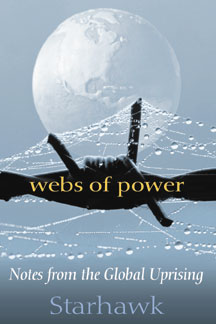
Weightlifting for Vegans
![]()
Wellington Rabbit Rescue

West Virginia Highlands Conservancy

Whale and Dolphin Conservation – News & Blogs
![]()
What I’ve Learned About U.S. Foreign Policy (2000)

What is moral progress? A Conversation with Peter Singer
![]()
What Is the Difference Between Weather and Climate?
![]()
What is the LD50 Test?
![]()
What the Health

When Civil Resistance Succeeds: Building Democracy After Popular Nonviolent Uprisings
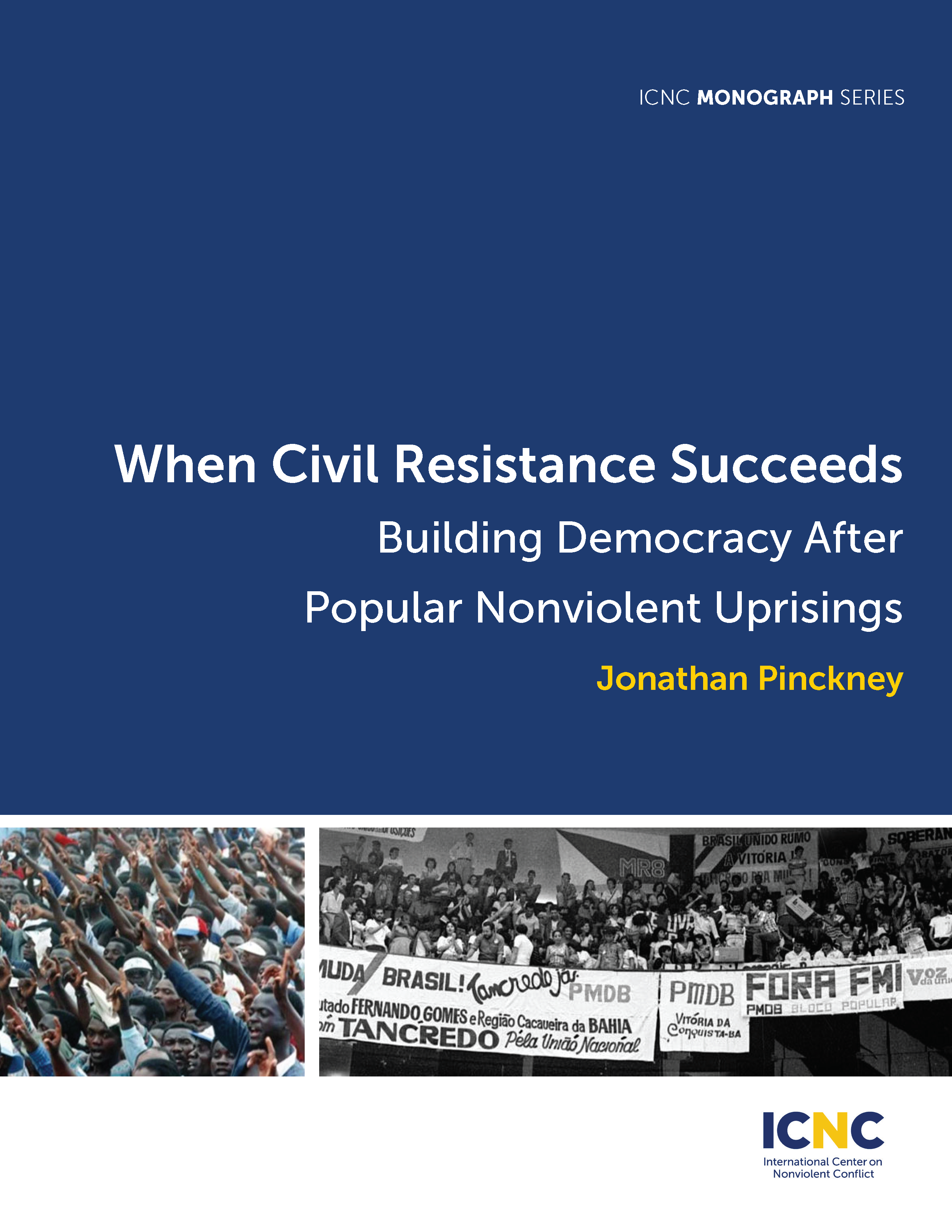
When Elephants Weep: The Emotional Lives of Animals
When Martin Luther King gave up his guns
![]()
Which Milk for What Recipe: A Non-Dairy Milk Guide for All Your Cooking and Baking Needs
![]()
Who Are THEY?
![]()
Why Black Bloc tactics won’t build a successful movement
![]()
Why Civil Resistance Works: The Strategic Logic of Nonviolent Conflict (article)
![]()
Why Civil Resistance Works: The Strategic Logic of Nonviolent Conflict (book)

